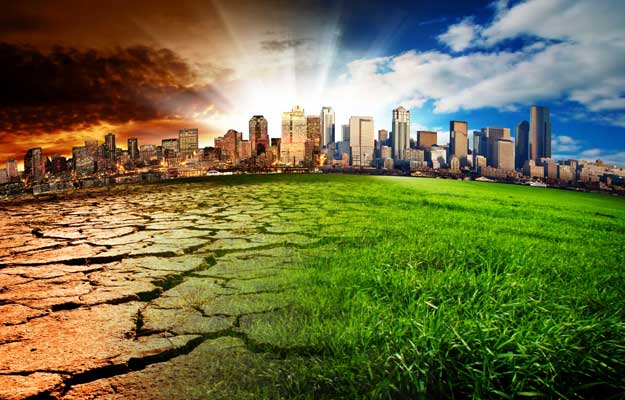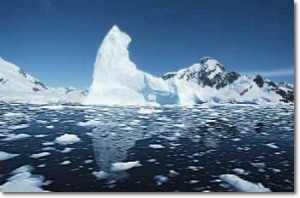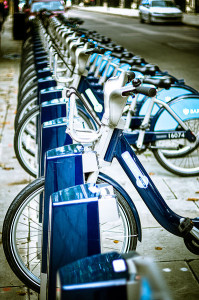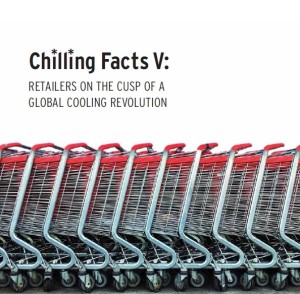Realities behind five common climate change myths


As the world warms up around us, climate change is becoming an ever-more topical subject. Newsrooms can’t get enough of it, politicians worry that their legacy will be haunted by it and, as the British winter draws to a close, most people are still up to their knees in it. But with so many interests at stake, how can we be sure that the latest stories hot off the press are credible? Here are five climate myths debunked to help you on your way!
.
Natural climatic warming and cooling has helped to shape the geography around us. However, anthropogenic climate change is altering our environment in a faster and more unpredictable way that one could ever have imagined.
To put it into perspective: if the history of the world was condensed into a 24-hour clock, human beings would not appear until about three minutes to midnight and civilisation would only emerge at about 30 seconds to midnight. Yet in this short time, humans have arguably done more to alter the biosphere than has occurred in much of the past billion years. We need to recognise that our industrial activities have huge consequences to the world around us. A mere two per cent rise in global temperatures threatens to wipe out up to 30 per cent of the planet’s species.
 Climate change won’t affect me though!
Climate change won’t affect me though!The pervasive nature of the environment means that climate change is largely indiscriminate as to whom it affects. While undoubtedly the injustice of climate change means that the burden is often greatest on those who have contributed least to its causes, uncharacteristically turbulent weather patterns suggest that its effects are far-reaching.
The start of 2014 saw the wettest January on record for many parts of the UK, leading to widespread flooding and some reluctant visits from a few rather red-faced politicians in their waders and wellies. Nature can no longer be viewed as a spectacle to which humans have ringside seats – we need to recognise that the environment is a system worth investing in so as to safeguard a more positive future for all.

Bicycles for hire in London, by Mark Ramsay
Climate change occurs on a global scale but we as human beings bear a responsibility to mitigate climate change, so far as we can, through our everyday actions.
Next week the European Parliament will vote on a new F-Gas Regulation – a piece of legislation with which EIA has been closely involved that will see the use of hydrofluorocarbons (HFCs) in Europe reduced by almost 80 per cent by 2030.
But while advocating top-level change has created some fantastic results, it is wrong for us to assume that policy reforms alone are enough when we as citizens can and must do far more. It’s not all doom and gloom, though – simple actions such as cycling to work, purchasing locally sourced goods or opting to give up bottled water can all help ensure that our actions really do make for a cleaner, greener world.
Stagnation under recent climate negotiations might obscure the fact that some of the most encouraging examples of carbon governance have been at a local level, in our homes and communities. This doesn’t mean we can’t ask our politicians to do more – of course we should – but it makes us more accountable to our words. Greater social change fosters the ability to take climate change off the back burner once and for all, before we feel the heat ourselves!
To quote an old favourite mantra of EIA’s, courtesy of Margaret Mead: “Never doubt that a small group of thoughtful, committed citizens can change the world; indeed, it’s the only thing that ever has.”
 Carbon dioxide (CO2) is just one of several greenhouse gases which cause the global warming effect. But while CO2 is responsible for the majority of global emissions, the unwanted release of other gases such as HFCs is on the rise. Used primarily for cooling, these powerful greenhouse gases can have a global warming potential of up to 20,000 times more than CO2. Whilst they represent just two per cent of global emissions today, this is expected to rise to 20 per ent by 2020 under a business-as-usual scenario.
Carbon dioxide (CO2) is just one of several greenhouse gases which cause the global warming effect. But while CO2 is responsible for the majority of global emissions, the unwanted release of other gases such as HFCs is on the rise. Used primarily for cooling, these powerful greenhouse gases can have a global warming potential of up to 20,000 times more than CO2. Whilst they represent just two per cent of global emissions today, this is expected to rise to 20 per ent by 2020 under a business-as-usual scenario.
Despite their environmental notoriety, many people do not realise that HFCs are a growing problem. We need to address this now by substituting them with natural, climate-friendly alternatives, and EIA is encouraging European supermarkets to do just that.
Yes, but not always. When emitted into the atmosphere through the burning of fossil fuels and other human activities, CO2 emissions undoubtedly harm our planet. This is exacerbated by widespread deforestation which destroys natural carbon sinks.
However, as European supermarkets are demonstrating, CO2 has an important role to play in reducing the carbon footprint of our refrigeration and air conditioning. By switching to CO2 and other climate-friendly refrigerants such as ammonia and hydrocarbons today, retailers can help reduce the climate impacts of tomorrow.